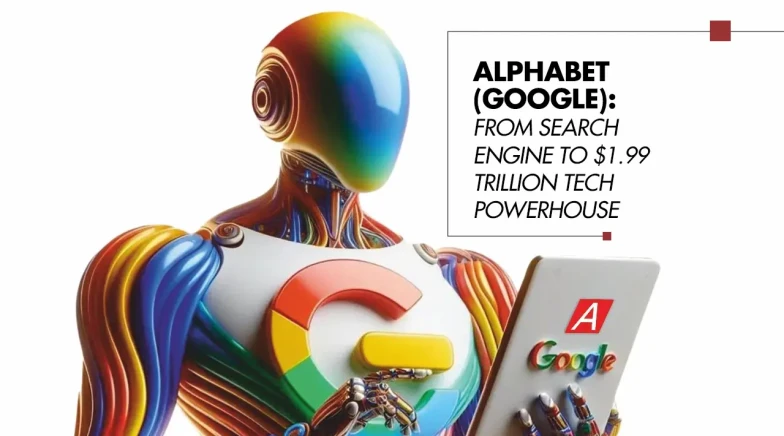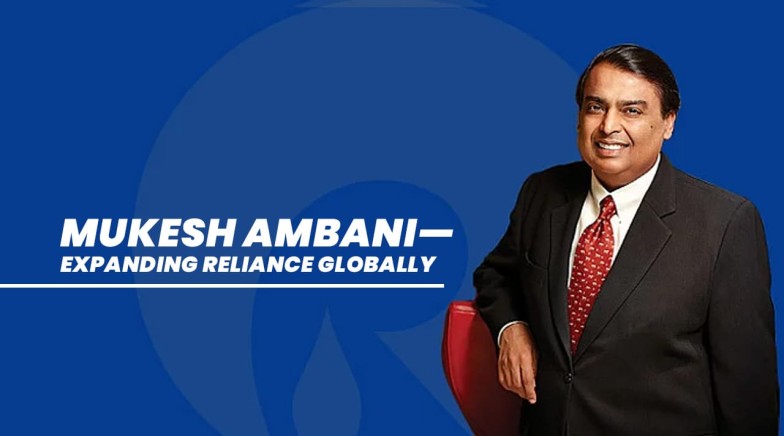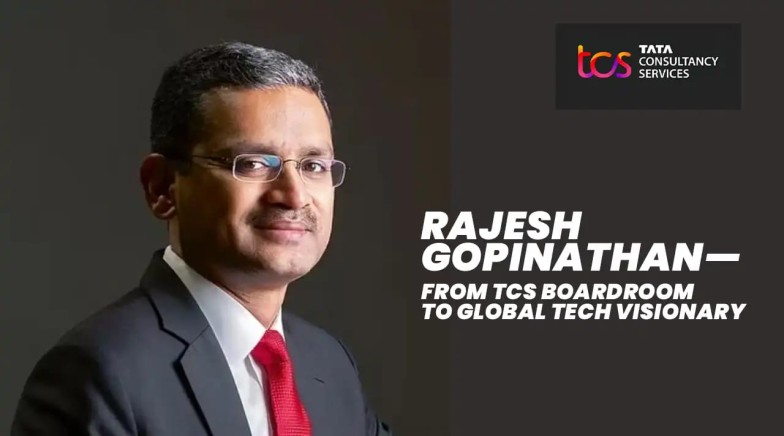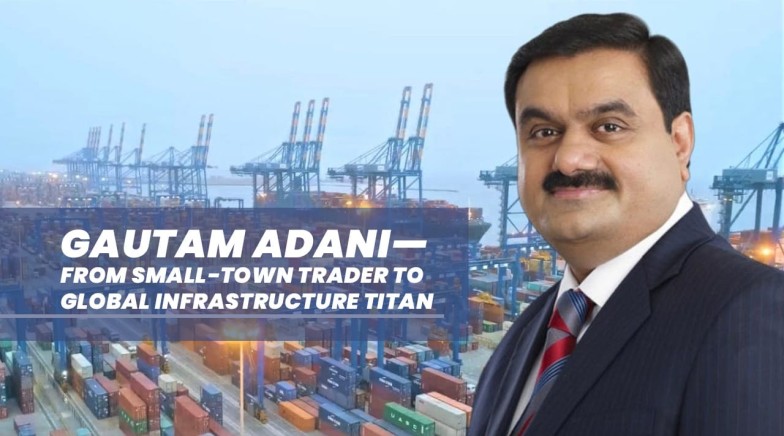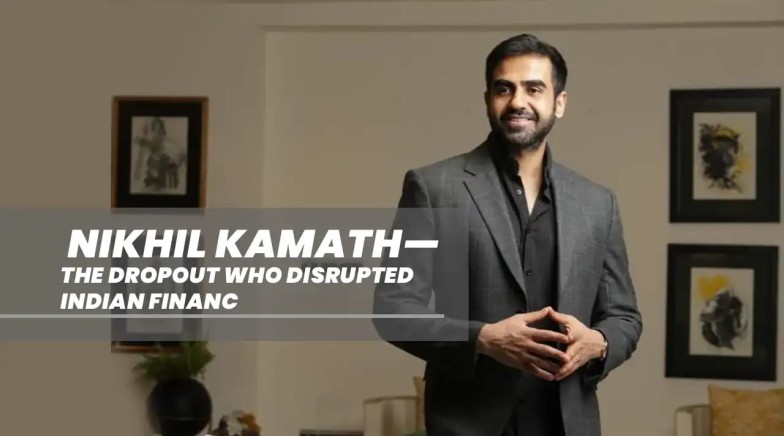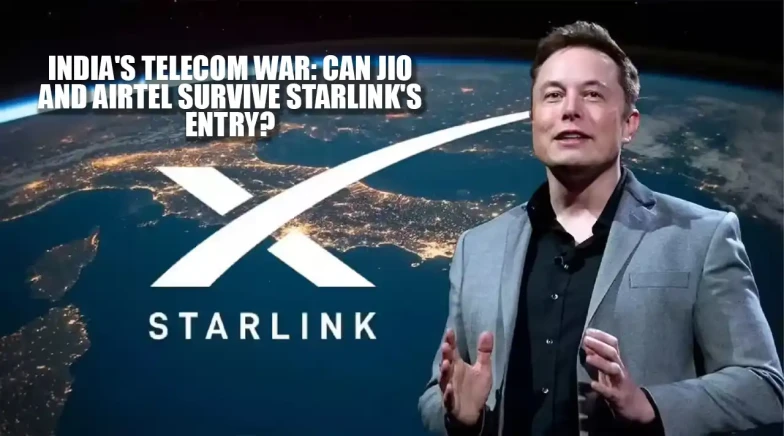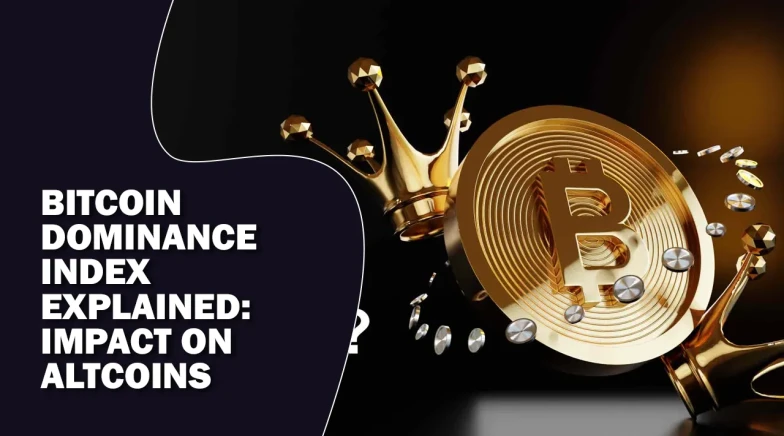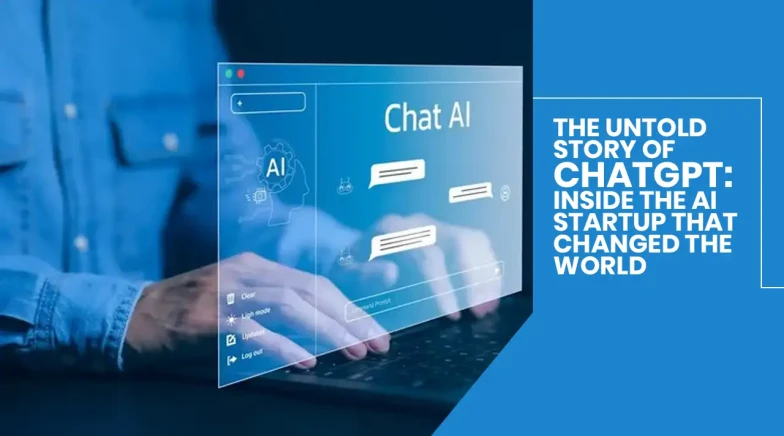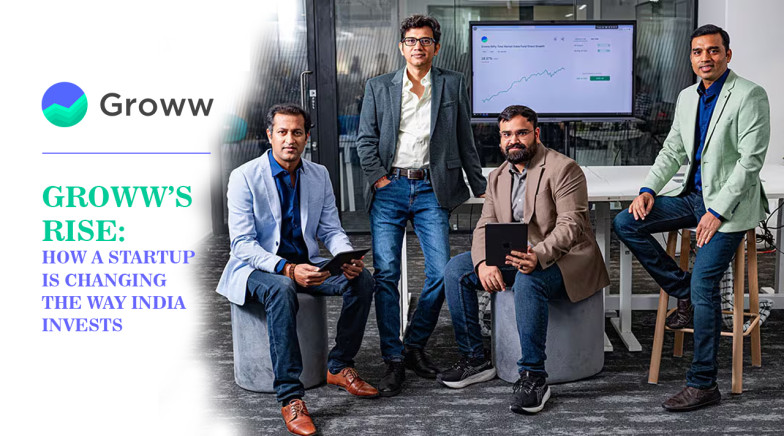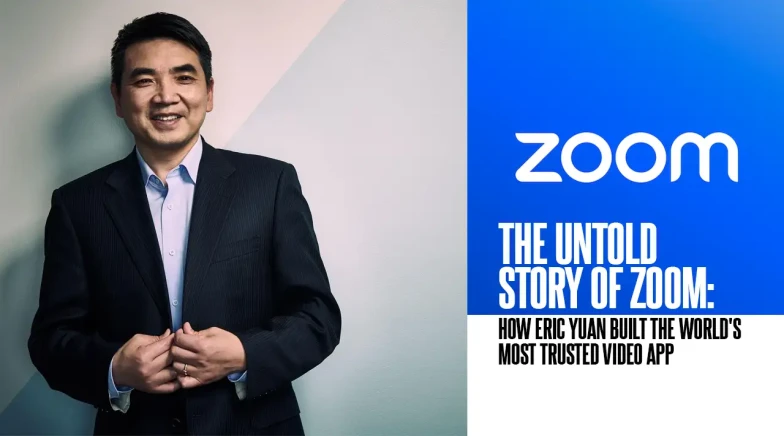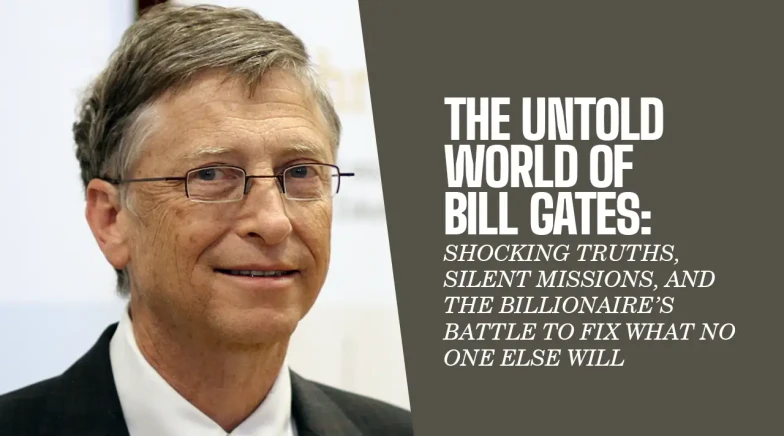Alphabet (Google): From Search Engine to $1.99 Trillion Tech Powerhouse

- Created Jul 01 2025
- / 516 Read
Alphabet (Google): From Search Engine to $1.99 Trillion Tech Powerhouse
Larry Page and Sergey Brin, two Stanford PhD students, started a project in their garage in 1998 that would change the way the world consumes information. The objective was simple but effective: "Organize the world's information and make it universally accessible and useful."
They dubbed it Google, a pun on the mathematics word "googol," which is a 1 followed by 100 zeros. Given the company's lofty goals, it makes sense.
Within a few years, Google had become the world's most trusted search engine, renowned for its speed, accuracy, and clean, user-friendly design.
While the program was free to consumers, Google's advertising network powered its economic growth. Businesses used Google Ads to sell their products to highly targeted audiences depending on the keywords they searched for.
It was a win-win situation: people discovered what they wanted, and companies communicated with their customers more effectively than ever before. This approach still drives a significant percentage of Alphabet's income today.
Google's product and service portfolio expanded in tandem with its growth.
Gmail transformed email by providing vast storage and clever search.
Google Maps transformed the way we travel the planet.
Chrome became the preferred online browser.
Google Drive provided cloud-based file storage.
Google Translate helped to cross linguistic hurdles.
Perhaps most importantly, Google purchased YouTube in 2006, which now has over 2 billion monthly viewers and is a global hub for video content, education, and entertainment.
Becoming Alphabet
By 2015, the firm had expanded significantly beyond search and advertising. To tackle this complexity, Google reorganized and established a parent company, Alphabet Inc. Google became one of its companies, along with a few "other ventures."
These new divisions enabled Alphabet to test out large, ambitious ideas without harming its core business. Some of these endeavors are:
Waymo (Self-Driving Technology)
Verily (health and life sciences).
DeepMind (Advanced AI Research)
X (Experimental Innovation Lab)
This structure increased transparency for investors and leaders while allowing each unit to function independently and efficiently.
Devices, Platforms, and Everyday Life
Alphabet is heavily integrated into everyday digital life through:
Android which is the most extensively used mobile operating system.
Google Chrome which is the world's top web browser.
Google Search which is the go-to source for internet information.
YouTube which is a leading platform for content, learning, and marketing.
These things are more than simply tools; they constitute a complex ecology on which billions rely every day.
Alphabet is currently mostly focused on AI. From search and recommendations to language translation and productivity tools, AI is becoming the foundation of all products.
Highlights include:
Google Assistant is your virtual assistance for chores and queries.
Smart Compose in Gmail helps you finish your phrases.
Real-time translation and live transcribing technologies.
Gemini, Google's solution to ChatGPT, is now incorporated into Search and Workspace.
The goal is clear: make AI helpful, responsible, and accessible to everybody.
YouTube: A Business Empire in Itself.
What started as a video-sharing website is now a key element of Alphabet's business.
YouTube Shorts competes with TikTok for short-form content.
YouTube TV provides live streaming.
YouTube Premium offers an advertisement-free experience.
Creators, companies, and corporations use the platform to reach large audiences.
It's more than simply entertainment; it's a worldwide exchange of ideas, material, and business.
Challenges on the road
Success has not come without scrutiny. Alphabet has faced regulatory pressure in the US and EU on competition and monopolistic tactics, faced privacy considerations around data collecting, charged witg content moderation challenges on YouTube and Internal objections over ethical issues with AI and defense contracts
To its credit, Alphabet has made efforts to address these concerns, such as releasing AI principles, boosting openness, and investing in digital security.
What Is Next for the Alphabet?
In 2025 and beyond, Alphabet will invest in:
Expanding Google Cloud, particularly in AI-powered corporate products.
Increasing its foothold in growing areas like India and Africa.
Advancing sustainability goals, with a target of being carbon-free by 2030
Driving AI-first innovation across all goods and services.
Extending the limits of healthcare, robotics, and quantum computing
Yes, the company's market capitalization just reached $1.99 trillion, making it one of the world's most valuable companies.
Final Thoughts
From an experiment in a garage to one of the world's most powerful corporations, Alphabet's narrative is one of curiosity, bold thinking, and relentless innovation.
The essential point is that success comes when you focus on addressing actual issues, are open to change, and think long term.
For Add Product Review,You Need To Login First

